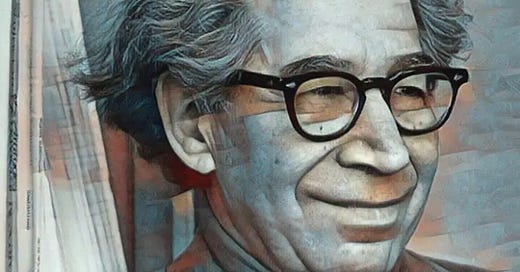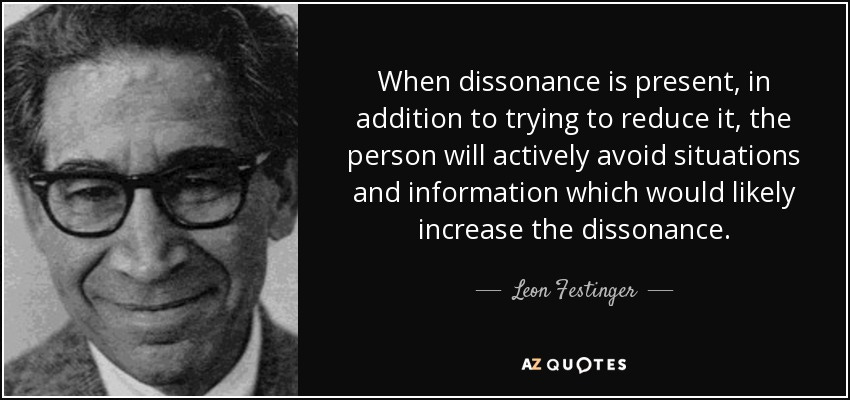The theory of cognitive dissonance, developed by American social psychologist Leon Festinger, describes the mental discomfort that arises when a person holds conflicting or contradictory ideas, values, behaviors, or information.
For example, imagine deciding to go on a diet but then indulging in fried chicken and a tub of ice cream. The inconsistency between your goal and your actions is immediately apparent. Similarly, if you strongly support a public figure and then learn that they have acted in a way that contradicts their expressed values, you may experience dissonance between your loyalty and the new information.
This conflict between expectations and reality creates psychological discomfort, and people have a natural drive to reduce this distress. Humans seek consistency between their beliefs and reality, often going to great lengths to reconcile contradictions.
There are many ways to resolve cognitive dissonance—some constructive, others not.
A healthy response might be acknowledging a lapse in judgment, committing to healthier eating habits, or adjusting one’s view of a public figure based on new evidence.
Conversely, maladaptive responses include rationalizing poor choices, distorting reality to fit one’s beliefs, or outright denying inconvenient truths. People often resort to self-deception, justifications, or denial as a way to maintain cognitive consistency.
Cognitive dissonance is a universal experience, and how we handle it reveals much about our character and maturity. We tend to admire those who can admit mistakes, adapt to new information, and navigate setbacks with grace. On the other hand, we often feel frustrated by those who cling stubbornly to falsehoods or react defensively when confronted with opposing views.
The drive to resolve cognitive dissonance helps explain why people instinctively reject facts or ideas that challenge their beliefs—sometimes only accepting them after initial resistance.






he was my uncle -in -law. Took me to 1st Broadway show in 1975
"We tend to admire those who can admit mistakes, adapt to new information, and navigate setbacks with grace. On the other hand, we often feel frustrated by those who cling stubbornly to falsehoods or react defensively when confronted with opposing views."
Which is precisely why I do not admire those Unitarian Universalists, including most if not all top-level UUA leaders, who obstinately refuse to admit to very serious "mistakes", adapt to new information I provide to them proving them wrong, and navigate their own self-created "setbacks" with some semblance of grace.
It's incredible how these UUs cling stubbornly to misleading falsehoods, and even brazen bald-faced lies, they themselves have spouted, and react insanely defensively when confronted with my opposing views to their hypocritical and immoral BS and lies. . .